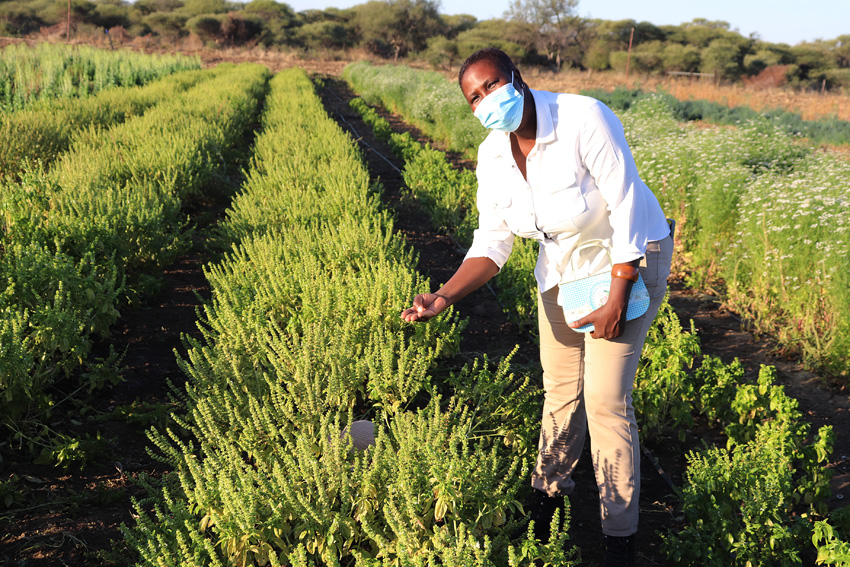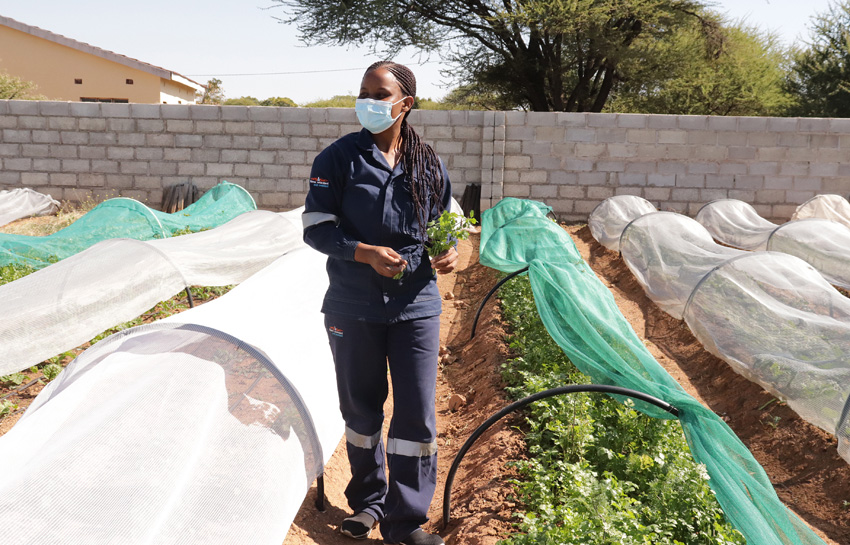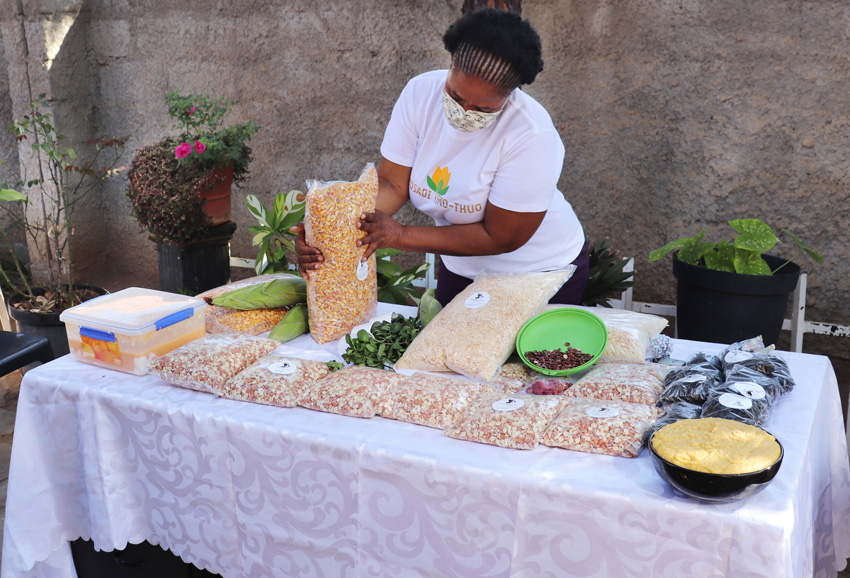Women make strides in agriculture
17 May 2021
Women have for the longest time occupied the back seat while their male counterparts took the front seat in all things agriculture.
In Botswana cattle rearing has been associated with masculinity and women’s role in agriculture is more to do with ploughing and looking after crops.
A real man was considered to be one with a sizable herd.
The narrative has greatly changed, not just here at home, but the world over and women’s role in farming is not one that can be ignored anymore. They are now part and parcel of the whole game.
Women have in recent years quit formal employment and put aside their educational qualifications to get their hands dirty in farming.
Not only have they taken interest in farming, they have brought in some new concepts because of their inquisitive nature.
Lindi Morwaeng interviewed women who are making strides in modernising farming and making it fashionable.
Of the many and new exciting things that women are venturing into in agri-business is herb cultivation.
Previously unheard of in Botswana, especially on a commercial basis, Batswana were only accustomed to traditional/natural herbs, some of which grow in the wild such as mosukujane, monnamontsho, kgomodimetsing and many others.
Unpopular as the undertaking maybe, this has not deterred those interested to take the road less travelled.
A BUAN alumni, Ms Esinah Onias, who holds a Bsc degree in soil and water conservation engineering is one such individual.
A Zezuru by decent, the 27-year-old who completed her degree in 2017, knew from the onset that she was not cut out for the office.
She instead enrolled for an internship with the Ministry of Agricultural Development and Food Security that lasted for only three days. Formal employment was clearly not for her.
From her rented house in Gaborone, Ms Onias started a backyard garden where she experimented with different vegetables, herbs inclusive.
She recalls that her love for farming started when she was doing her final year thesis. She got to learn that the country spent huge sums importing agricultural produce.
It was that revelation that helped her decide what she wanted to do after varsity.
She started small, on a three by four square metre garden, growing peppers, garlic, ginger and lettuce.
After that, she was faced with the daunting task of marketing her small produce and it took her months visiting different places, including restaurants.
Her efforts paid off one day when Bull and Bush Restaurant put an order. That sealed her fate and she never looked back.
The restaurant would now and then place orders for lettuce, parsley and basil.
She continued to approach other potential customers.
But because she did not own land and had started on a small space, Ms Onias says she had to move from one place to another in search of bigger space in order to increase her produce.
In 2018 she approached Square Mart Supermarket and gave them samples of her produce which they put on their shelves on a trial basis. There was no commitment, only trials.
So determined was Ms Onias that she would go to the supermarket and stand by the fresh produce department to market the herbs to customers who would randomly pick a packet.
She also educated customers on how to use them and their health benefits.
This created interest from customers and eventually the store increased orders.
Things were now starting to look up for Ms Onias because in 2019, she enrolled for an agric-preneurship programme that is normally organised for graduates at BUAN and she was offered a net shaded area to grow her herbs.
The programme offered land, accommodation and transport for 18 months. She put the land she was offered to good use and added Fego Restaurant to the list of her clientele.
After she completed the programme in September 2019, Ms Onias says she rented a yard in Bokaa that measured 36 X 25 square metre where she constructed plots and put out a smart water irrigation system by herself.
She currently counts Spar and Squaremart supermarkets among those that she supplies with her produce that includes a number of herbs such as mint varieties of spear, standard, catnip and apple mint.
She also grows coriander, leaf and moscurl parsley, wild rocket, garlic chives, thyme, rosemary, neem, dill, lemon grass, fennel and basil. Her produce is organic.
Ms Onias dreams of owning land someday, to be able to expand her business, but noted that herbs can be grown anywhere even in small places since they grow easily in any type of soil, are pest resistant and grow fast.
Herbs can be used in many ways and Ms Onias shares that besides adding flavour to food, they can be used for medicinal and cosmetic purposes.
She reckons that herbs are high value products and therefore, a lot of money can be made from selling them but points out that marketing is a challenge and locals still need to be educated about herbs.
Most people especially in villages, she observes are not well acquainted with herbs hence sales can be rather slow.
Ms Onias says COVID-19 affected her business because most restaurants she supplied closed down.
Another female farmer, Ms Sarah Mosarwa, an electrical engineer by profession and former employee of Botswana Power Corporation, now owns KCM garden where she plants herbs and other vegetables in her six hectare farm in Metsimotlhabe.
Ms Mosarwa quit her formal employment and traded the overalls she used to wear as an engineer for the farm ones and opted for a full-time job in her farming enterprise that boasts of customers such as Shoprite, Spar and Pick and Pay whom she supplies with fresh produce.
Although she farms cash crops, Ms Mosarwa has gone a step further by experimenting with herbs instead of just selling them fresh.
She says an opportunity presented itself when most of her customers, supermarkets primarily did not place as many orders as they used to because of the pandemic.
She says her plants ended up overgrowing and eventually flowered and produced seeds.
The Boteti born farmer saw this as an opportunity not to buy seeds for her next ploughing season and started learning and researching more about processing them and many other uses and potential opportunities in herb farming.
She says some pharmacies sell oil made from herbs and intends to engage the Ministry of Agricultural Development and Food Security on how they can be processed.Ms Esther Letlhare, who owns Mosadi was Basadi Company, is another female farmer whose business packages dry farming produce such as maize and morogo wa dinawa to increase their shelf life.
The 59-year-old does not only package produce but does it a different way to enhance and add flavor to her products. For instance, she adds melon juice (kgodu ya lerotse) to morogo wa dinawa to add flavour.
A great fan of traditional cuisine, Ms Letlhare encourages Batswana to stick to traditional diet and that is the message she wants to relay to her customers. She is of the opinion that eating traditional cuisine can protect one from many lifestyle diseases and thus adding more years to one’s life.
She also encourages Batswana to engage in farming because it is what sustained many in the olden days, adding that today, there are many improved farming methods that Batswana can engage in to help reduce the food import bill.
Her wish is to see large supermarkets reserving sections for local produce only by Batswana.
Her other wish is to see more women in the front seat in all things agriculture. ENDS
Source : BOPA
Author : Lindi Morwaeng
Location : MOLEPOLOLE
Event : Interview
Date : 17 May 2021








